The largest big animals on the planet (Part 2)
With its large size, the dinosaurs dominated the mainland in prehistoric times, and the giant sharks once infested terror in the sea. However, both species have long since disappeared from Earth.
>> The largest big animals on the planet (Part 1)
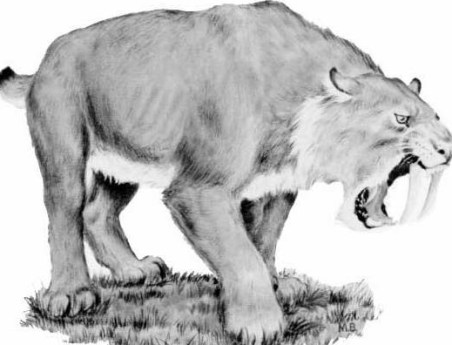
Fossil evidence shows that the tooth tiger has two fangs about 20 cm long. They have a shorter body length, but are much heavier than modern lions. This carnivore once thrived across California, USA 10-11 thousand years ago.
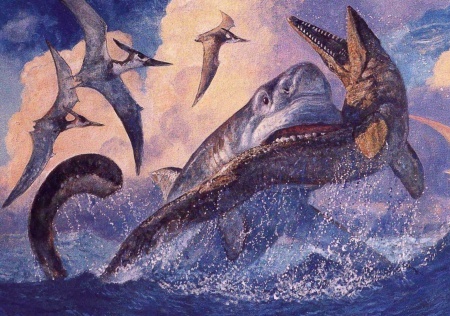
Giant sharks are about the size of a bus, but they disappeared about 2-3 million years ago. Many scientists think that they are the ancestors of white sharks.
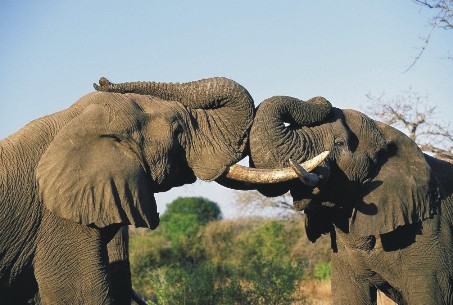
African elephants are one of four species of elephants that exist on Earth. The average weight of an adult can reach 8,000 kg. The decline in forest area and hunting caused their numbers to halve in the last three decades.
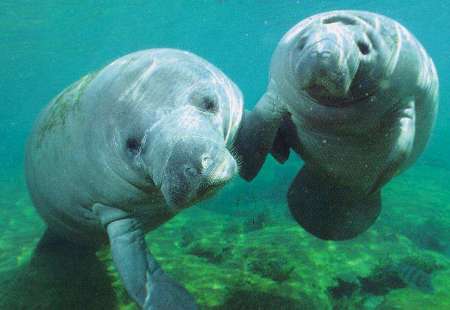
The adult manatee has an average length of 3-3.6 m and weighs 500-900 kg. Their hearing is ten times more sensitive than humans in water. Although they bear the name of the manatee, they are called "the rhinos of the sea".
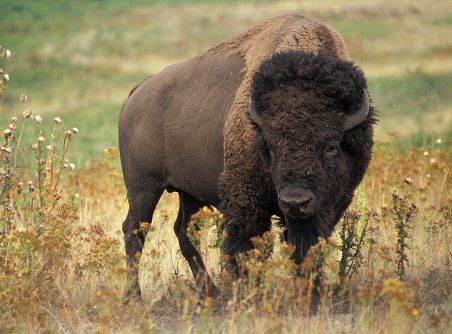
With an average weight of 1,000 kg, North American wild buffalo is the largest terrestrial animal in North America. Tens of millions of North American buffaloes once dominated the pastures before they were hunted to nearly extinction in the 19th century. Thanks to conservation efforts, their numbers have increased to 350 thousand.

Dinosaurs dominated the Earth in prehistoric times. The largest dinosaur fossil scientists have ever known belongs to the Brachiosaurus, with a body length of nearly 22.9 m and a height of more than 12 m. Despite its size, dinosaurs still have not escaped extinction after a disaster about 65 million years ago, making the Earth's climate change.

Giant apes never existed in parallel with humans for about 1 million years. Fortunately for humans, animals with a height of more than 3 meters and weighing up to 600 kg only eat bamboo leaves. Human expansion of human habitat and cultivation has pushed them into extinction.

Whales are the largest animals on the planet. They can be longer than 30 m and weigh about 150 tons. Although they have large bodies, they only eat small molluscs and crustaceans like shrimp and crab.
- The largest big animals on the planet (Part 1)
- The largest animals are extinct
- The largest crocodile on the planet weighs more than a ton
- Discover the largest planet outside the Solar System
- Discover the huge migration of animals
- Greenland ice suddenly melted massively
- The mystery of life in the wildest part of the earth
- The largest animals on the planet
- The largest part of the body, never known in the human body
- Top 6 largest fish in the ocean
- Reveal the list of the 7 most massive
- Risk of extinction of large and small species
 The 11 most unique public toilets in the world
The 11 most unique public toilets in the world Explore the ghost town in Namibia
Explore the ghost town in Namibia Rare historical moments are 'colored', giving us a clearer view of the past
Rare historical moments are 'colored', giving us a clearer view of the past The world famous ghost ship
The world famous ghost ship